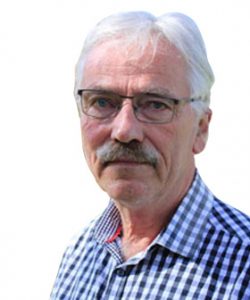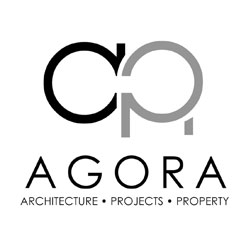In conversation with
Mr Albert Welfing
Managing Director | Agora Projects

FDI Spotlight: What is the DNA of Agora Projects and why have you taken a holistic approach to the development of Botswana?
Albert Welfing: Agora Architecture was established in 1986 to engage in the development and redevelopment of residential, commercial and industrial properties in the North West of Botswana.
Agora Architecture, incorporated in 1988, is related to Agora Properties, and Agora Projects, incorporated in 1995, together forming the Agora Group, and has been involved in the planning and implementation of numerous property development projects throughout Botswana, initially being most active in the north: Maun, Shakawe and Ghanzi, but now all over the country, including Gaborone, Charleshill, Mahalapye, Palapye and Francistown.
Agora Architecture draws on a depth of knowledge and experience in all aspects of property in the North West District through its tie-in with Agora Properties and Agora Projects, and their extensive involvement in this market over the past 24 years.
Agora Architecture is an important player in the development of Maun. Agora designed most of the commercial buildings and some of the high-end residential houses in Maun. The Botswana Mmegi newspaper wrote an article some time back to show why Maun looks different from other major Botswana villages.
Agora prides itself on delivering affordable and sensible buildings, most of which are properties generating income to the client. We get the odd chance to do some more spectacular stuff, like the BOCODOL building, but mostly we just do modest buildings, trying to do a little more than what others would do to deliver quality.
We organised building projects differently from the standard practice. We normally don’t engage one main contractor who engages subcontractors, as is the standard procedure, but rather agree with those specialist subcontractors, and provide the coordination during the design phase and on site. That saves the client in the range of 15% on his final account.
Before I came to Botswana, I worked for an architecture firm in Holland as a senior architect. I joined that firm when I was 25 years old and still a student. My father had stopped paying my university tuition, which meant I had to work very hard to support myself. It was the best thing he ever did; students rarely know what work is, and I had to learn how to balance work and student life quickly. After five years at this architecture firm, I decided to do something different. That is when I came to Maun, Botswana as an architect and building volunteer.
At that time there was almost nothing here; one bottle store, four shops and a Shell garage. I saw this big open space and, very wisely, the planners thought to build a central business district (CBD) here. It was honestly a stroke of brilliance because no other village in Botswana except for Maun has a centre; the other towns only have main roads, strip malls and shopping complexes. I saw that there was work here, so I finished my contract as a volunteer and started the company.
I am a practical person. Therefore, when I talk to a client, I listen carefully to what they want in order to figure out how we can best help. You have to read between the lines and listen to what they are not saying. I also insist that I speak to their partners. It is very important I give them the best products possible, which sometimes include a different element or vision to their original idea. I and my employees enjoy discussing with the client what he says he wants – and then to find out what he really wants. Those are invariably two different things.
Your work in Maun has really set a precedent for other developments in Botswana. Why have you chosen to develop more in the rural areas as opposed to where the majority of other developers go such as Gaborone?
Albert Welfing: It really is just a matter of lack of competition. Most people did not want to develop where I have chosen to.
I am somewhat of a rebel and there are many experts in many fields who dislike me because I do a lot in-house. I have the capability and capacity to handle some aspects of the things that need to be done in any project without depending on a whole army of specialists.
I also have the advantage of an engineering background. My official title in Holland is building engineer and my specialisation is architecture.
I can thus design with engineering in mind, which makes life for the structural engineer (if engaged in the project) a lot easier and therefore cheaper. I believe any specialist consultant should save more money than he costs.
There is a huge disparity between the haves and the haves not in Botswana. Within the property development sector here, do you believe you are the only one catering for the haves not?
Albert Welfing: I am not the only one, however, I believe my approach is very different. After building a filling station for residents in a rural area, to which I carried the costs, I was asked what I was gaining from it, and I had not even considered that, because prior to building it, all I really considered was that the people in that place were desperate for a filling station and really needed one. It is also not about making sure my company is seen as a charity or one that feels sorry for others; I have the means to help these people by building that station, therefore I want to do it.
What new projects have you launched and where do you see new possibilities for development in Botswana, where you can help the community grow, similar to what you did here in Maun?
Albert Welfing: We have a project in Charles Hill. The Botswanan Government has spent a lot of money on building and providing the community with what they need, such schools, housing, and storm drains. This is a superb thing for the people living there. However, Charles Hill does not have any shops, so it has the potential to stagnate or deteriorate. Therefore I started developing a commercial property that generates cash flow, which will benefit not only my client but also the local community and my company.
As mentioned earlier, Agora Projects is not a charity, and neither are my clients. This is a business and we deal in investments. However, we want to uplift the area and the people we do business in and with.
Sustainable projects, businesses, economies and livelihoods are created by commercialising what benefits the community and by what people need. I have to sharpen my pencil and make these projects affordable and make financial sense, which is not always an easy task.
You need to have a balance between costs and possible income. For example, the cost of rent goes down the further you move from Gaborone, when in fact it should go up due to the cost of building buildings farther away from the city. However, rentals also go down for people, which is why you need to make sure that the balance you have fits. Otherwise, you are wasting your time and your clients’ money.
I have become great at being cost effective; often people cannot believe how I can develop my properties on a given budget, compromising no aspect of it. It is possible to build amazing structures that are safe, reliable, good looking and affordable.
It is often said that while Botswana is an amazing country with equally amazing people, getting things done and implementing plans and procedures is somewhat difficult. What do you think needs to change for a mind-shift to occur?
Albert Welfing: In the property sector I believe consultants should not be paid a percentage of the cost of the project. By doing this you ensure that a building will be as expensive as it can be – it is in the consultant’s best interest.
Like many other countries, Botswana needs international investors and investment. It is not only needed for capital investment, but also for the continued transfer of knowledge.
However, international investors are unsure and often unrealistic about Africa. Those looking at Botswana as an investment destination needs to foremost, have patience. Second, they need to know the business they are investing in and know their own business well. Third, they need to lower their expectations and not operate under assumptions.
Most of all, Batswana are decent people. There is a decency here. Botswana is safe. There is a marked effort against corruption, which makes it less of a culture shock for investors compared to some other African countries. Infrastructure is generally good.
Botswana has fantastic opportunities for every type of investor. The country has so much going for it and the opportunity for growth continues to be amazing.
